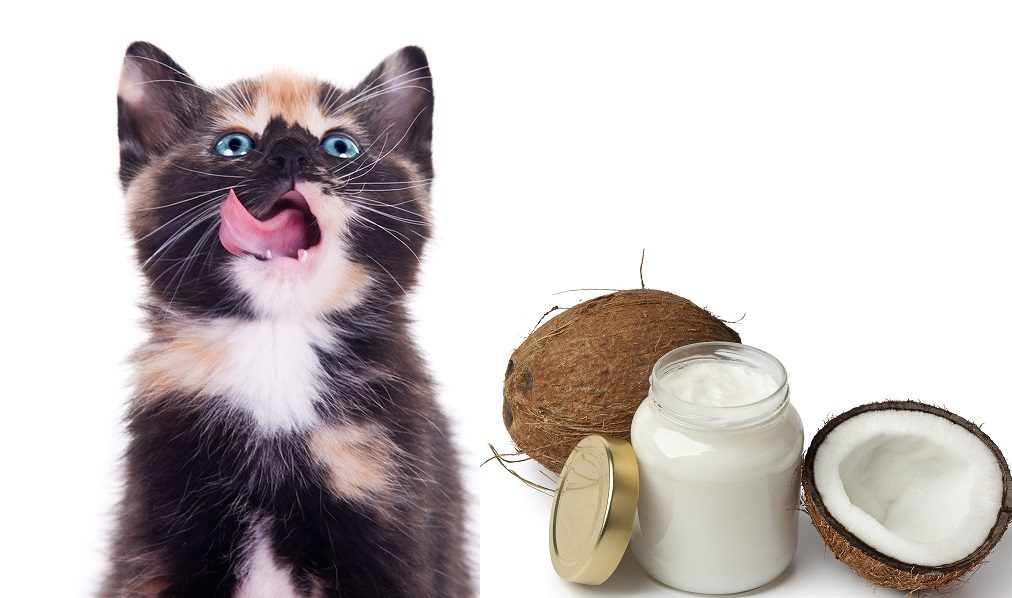People enjoy consuming a coconut in plenty of forms. It has been used for a long time for various things, from hair to skin to soothe your gut. Coconut has been known to be beneficial. People love it and there is a good reason for that, it tastes great!
When we have pets, we always need to be watchful because they keep nibbling or trying to eat something or the other. It is important as pet-owners to be responsible and ensure that our pet eats only what is best for them. So, this begs to question, is eating coconut good for your cat?
cat eats eat coconut
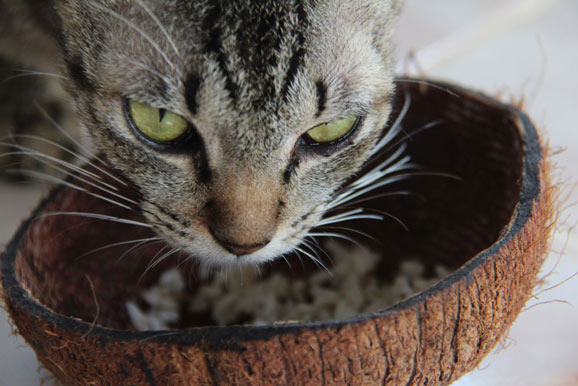
There are some cats who really enjoy eating coconut. They love everything about it, from its texture to the softness and to the flakes. The creamy, mild taste is very appealing to them. But there are also some cats who stay as far away from coconuts as possible. So, first, understand your feline friend’s preference well. If your cat does enjoy coconut, then make sure he or she has it in moderation because the digestive system of a cat is not built to handle too much fruit. And coconut is after all a fruit.
Be in standby
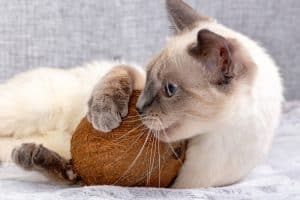
Sometimes, your cat might playfully be tossing around a coconut shell or two. But, if it wants to indeed eat the coconut, you need to be there to make the process easier because the flesh of the coconut is quite tough and cats will find it difficult to eat unless you shred it beforehand. You can also surely offer this treat to your cat in other forms like coconut milk, coconut oil, coconut water, etc. Again, depends on what your pet likes. Approach this with the classic ‘trial and error method.
Can we feed coconut water to cats?
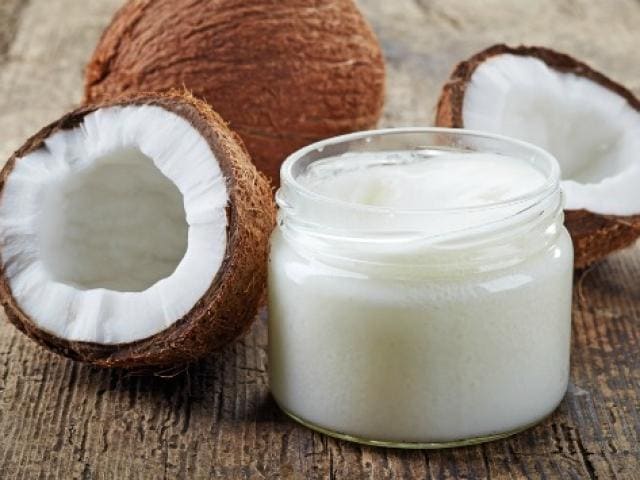
Adult cats are not to be given too much cow’s milk (contrary to popular belief) because, like their owners, there is a possibility that they too are lactose intolerant, this becomes the case as and when they start to get older. Your cat may be a fan of how milk tastes, but it can surely upset its stomach. In such a scenario, coconut milk is a viable option. Like normal cow’s milk, coconut milk is filled with sugars and fat, adding to the taste that your cat enjoys. Store-bought packaged coconut milk may not be recommended for this because it may contain preservatives that will be harmful to your cat. A better option is to soak shredded coconut in hot water until it becomes creamy. Then the leftovers can be removed and they can be given to your cat to drink and enjoy. You can mix coconut milk to your cat’s water as well. Another good way to give your cat coconut is to mix small portions of coconut milk to any cat food that is wet, it will make it creamier. The added advantage is that their sugar and fat intake can be kept in check as well as letting your pet enjoy the smell and taste of coconut that it really likes.
Coming to coconut water, which can be extracted from a fresh coconut, there is a slight issue. It being that coconut water is high in sugar. If you are insistent on giving it to your cat, just a teaspoon or two a day should do in order to give your cat a refreshing treat.
Can we feed coconut oil to cats?

Coconut oil is potent and versatile. Cats can definitely eat coconut oil without any cause for worry. The oil form has a strong aroma and flavor that cats will enjoy. Ideally, cats should be happy to lap up a small quantity of coconut oil from a spoon. But, if your pet is not too keen, then it can be mixed with wet cat food. It can be added to cat treats as well if you are into baking them for your cats. Whichever form you may choose, it is best to serve coconut oil to your cat in a slightly warm form. This strengthens the scent of the ingredient, even more, and your cat can savor the flavor.
If a cat eats too much coconut, what happens
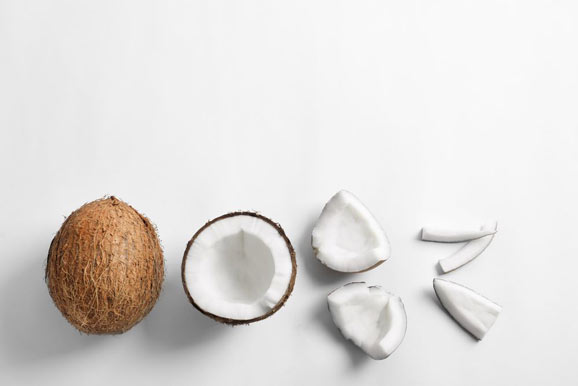
Since coconut is high in fatty acids and sugar, if too much of it is ingested by your cat, it could cause intestinal distress. This is why including coconut in your cat’s diet should not be a daily occurrence even if your cat has a fond liking for coconut products. Kittens can be given just a few drops of coconut oil to just check if they like the taste. The flesh of the coconut is not to be given to a young kitten until it is old enough to try dry food without facing any trouble. A kitten’s mother’s milk cannot be substituted with coconut milk. Not a good idea to do so because it does not contain the nutrients a kitten will need. For an average cat, no more than one teaspoon of shredded coconut flesh should work per day (if daily inclusion in the plan), but exceeding this amount regularly is a bad idea because it can cause hyperlipidemia (high cholesterol), pancreatitis (inflammation of the pancreas) or hepatic lipidosis (fatty liver disease). If your cat displays any health issues or symptoms that could lead to them, feeding it coconut should be stopped instantly and you must consult a vet.
Other uses of coconuts for cats
Coconuts can be used for skincare, even for cats. Coconut oil can soften a cat’s fur and help loosen any tangles. A few drops to massage on your cat will help develop a healthier, shinier coat. Straightening the cat’s fur also becomes much easier. Stressed cats are known to develop irritated patches of skin. Coconut oil can be the perfect choice to treat such skin conditions. The fats and vitamin E available in coconut oil are effective in soothing and moisturizing affected skin. Applying coconut oil to a cat’s ear also keeps ear-mites at bay.
